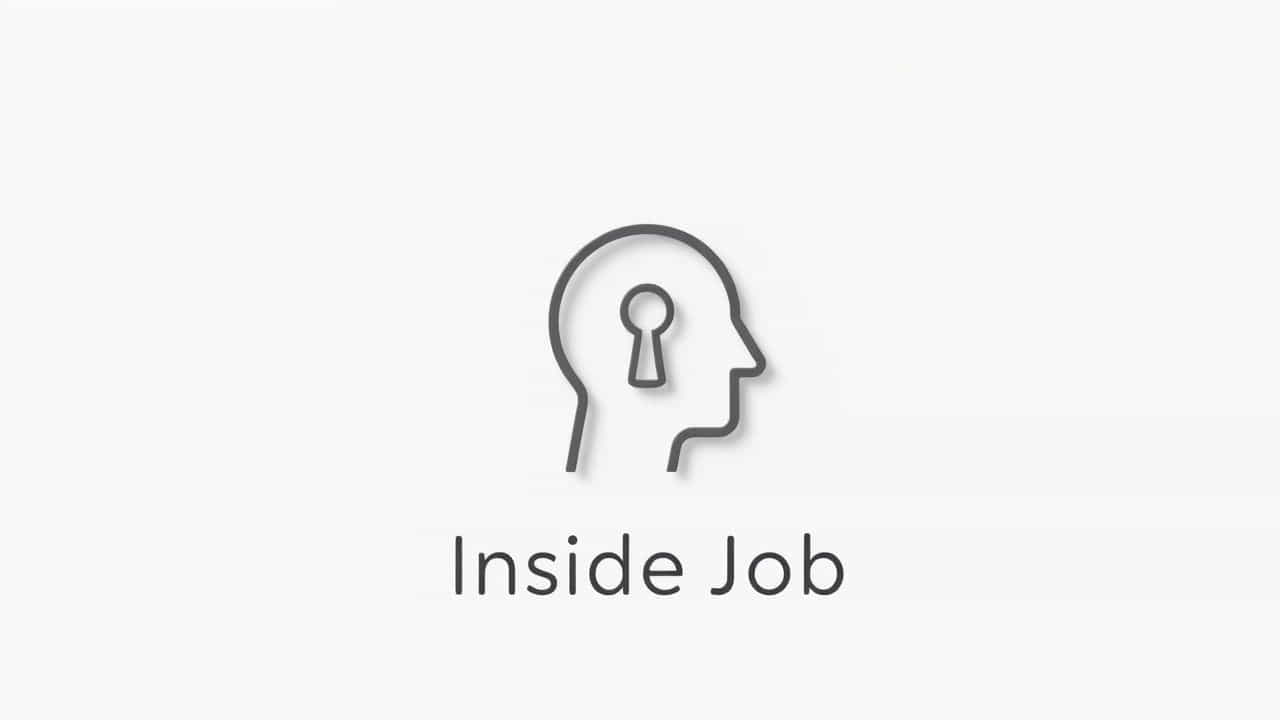An inside job is a crime, fraud, or act of wrongdoing committed by someone within an organization, company, or group. Unlike external threats, an inside job happens when a trusted individual uses their position to carry out or assist in criminal activities.
Inside jobs can involve various forms of misconduct, including theft, embezzlement, hacking, and even sabotage. These crimes are often more dangerous than external threats because the perpetrator has access to sensitive information and knows how to bypass security measures.
In this topic, we’ll explore what an inside job is, common examples, how it happens, and ways to prevent it.
Definition of an Inside Job
An inside job refers to any criminal or unethical act committed by someone within an organization. The term is often associated with financial fraud, corporate espionage, and even major heists.
Since the perpetrator is an insider, they can exploit their authority, knowledge, or access to commit crimes that would be difficult for an outsider to pull off.
Common Types of Inside Jobs
1. Employee Theft
One of the most common inside jobs is employee theft, where a worker steals money, products, or valuable data from their employer. This can range from small-scale theft, like stealing office supplies, to large-scale fraud involving millions of dollars.
2. Embezzlement
Embezzlement happens when an employee, usually someone in a financial role, misuses company funds for personal gain. This could involve altering financial records, making unauthorized transactions, or creating fake expenses to cover up stolen money.
3. Corporate Espionage
Corporate espionage, or insider trading, occurs when employees sell or leak confidential information to competitors or use insider knowledge for financial gain. This is illegal and can result in severe penalties.
4. Cybersecurity Breaches
Some of the most damaging inside jobs involve cybersecurity breaches, where an employee or contractor leaks sensitive information or provides hackers with access to internal systems. Since insiders know the security protocols, they can easily bypass them, making these breaches difficult to detect.
5. Sabotage
In some cases, employees may intentionally damage company property, data, or reputation out of revenge, political motives, or financial incentives. This can range from destroying documents to physically harming equipment.
Real-Life Examples of Inside Jobs
The 1978 Lufthansa Heist
One of the most famous inside jobs in history, the Lufthansa Heist, involved airport workers helping a gang steal over $5 million from a vault at JFK Airport. Because insiders provided security details, the robbers executed the crime with precision.
Edward Snowden and the NSA Leak
Edward Snowden, a former NSA contractor, leaked classified government documents, exposing mass surveillance programs. This case is a prime example of an inside job where an insider uses privileged access to reveal sensitive information.
The Volkswagen Emissions Scandal
In 2015, Volkswagen employees were involved in manipulating emissions tests to make their cars appear more environmentally friendly. This corporate fraud case showed how inside jobs can involve widespread deception.
How Do Inside Jobs Happen?
Several factors make inside jobs possible:
-
Access to Sensitive Information – Employees often have unrestricted access to financial records, security systems, or classified data.
-
Lack of Oversight – Weak internal controls and poor supervision can allow fraud to go undetected.
-
Financial Motives – Employees facing financial hardship may resort to stealing or committing fraud.
-
Revenge or Resentment – Disgruntled workers may seek revenge against their employer by sabotaging operations.
-
Bribery or External Influence – Some employees may be pressured or bribed by external criminals to assist in an inside job.
How to Prevent Inside Jobs
1. Strengthen Internal Security
Organizations should implement strict access controls to prevent unauthorized individuals from accessing sensitive data or financial resources.
2. Conduct Background Checks
Before hiring employees, companies should conduct thorough background checks to ensure they do not have a history of fraud or misconduct.
3. Implement Employee Monitoring
Using surveillance systems, financial audits, and cybersecurity tools, companies can monitor suspicious activities and detect potential threats early.
4. Encourage Whistleblowing
Creating a whistleblower protection program allows honest employees to report suspicious behavior without fear of retaliation.
5. Rotate Duties and Conduct Audits
Regularly rotating job responsibilities and performing random audits can prevent employees from covering up fraudulent activities.
An inside job is a crime committed by someone within an organization, making it particularly dangerous and difficult to detect. Whether it involves theft, embezzlement, or cybercrime, inside jobs can cause serious financial and reputational damage to companies.
By understanding how inside jobs happen and implementing strong security measures, organizations can reduce the risk and protect themselves from internal threats.
